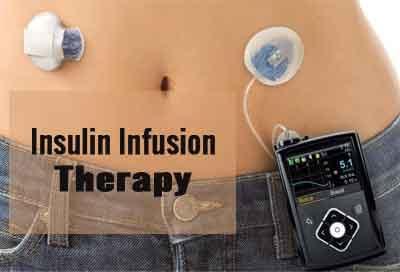- Home
- Editorial
- News
- Practice Guidelines
- Anesthesiology Guidelines
- Cancer Guidelines
- Cardiac Sciences Guidelines
- Critical Care Guidelines
- Dentistry Guidelines
- Dermatology Guidelines
- Diabetes and Endo Guidelines
- Diagnostics Guidelines
- ENT Guidelines
- Featured Practice Guidelines
- Gastroenterology Guidelines
- Geriatrics Guidelines
- Medicine Guidelines
- Nephrology Guidelines
- Neurosciences Guidelines
- Obs and Gynae Guidelines
- Ophthalmology Guidelines
- Orthopaedics Guidelines
- Paediatrics Guidelines
- Psychiatry Guidelines
- Pulmonology Guidelines
- Radiology Guidelines
- Surgery Guidelines
- Urology Guidelines
Use of Insulin pumps lowers risk of serious complications among young patients with type 1 diabetes

Compared with insulin injections, insulin pump therapy among young patients with type 1 diabetes was associated with a lower risk of diabetic ketoacidosis and severe hypoglycemia, according to a study published by JAMA.
The use of insulin pumps for intensive insulin therapy among patients with type l diabetes has increased substantially in recent years. Several studies have reported an increased risk of ketoacidosis (a serious diabetes complication where the body produces excess blood acids) associated with insulin pump therapy in pediatric patients with diabetes. Beate Karges, M.D., of RWTH Aachen University, Germany, and colleagues conducted a study that included patients with type 1 diabetes younger than 20 years and diabetes duration of more than one year who were treated with insulin pump therapy or with multiple (four or more) daily insulin injections.
Of 30,579 patients (average age, 14 years), 14,119 used pump therapy and 16,460 used insulin injections. Pump therapy, compared with injection therapy, was associated with lower rates of severe hypoglycemia (9.55 vs 13.97 per 100 patient-years) and diabetic ketoacidosis (3.64 vs 4.26 per 100 patient-years). Glycated hemoglobin levels and total daily insulin doses were lower with pump therapy than with injection therapy.
"These findings provide evidence for improved clinical outcomes associated with insulin pump therapy compared with injection therapy in children, adolescents, and young adults with type 1 diabetes," the authors write.
Several limitations of the study are noted in the article.
For more details click on the following link: doi:10.1001/jama.2017.13994

Disclaimer: This site is primarily intended for healthcare professionals. Any content/information on this website does not replace the advice of medical and/or health professionals and should not be construed as medical/diagnostic advice/endorsement or prescription. Use of this site is subject to our terms of use, privacy policy, advertisement policy. © 2020 Minerva Medical Treatment Pvt Ltd